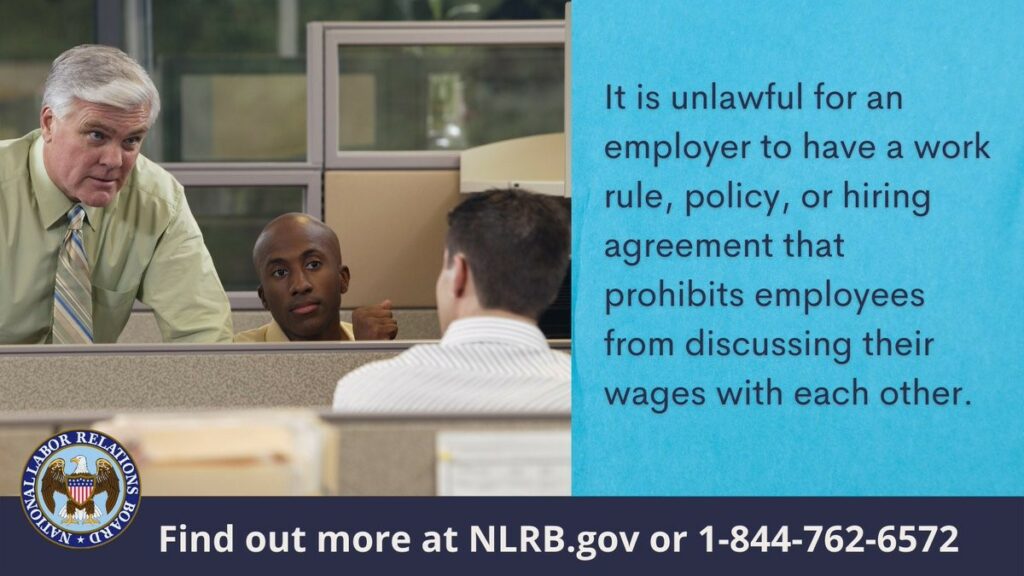Asking about, discussing, or disclosing pay
You have the right to organize with others to improve wages and working conditions.
The National Labor Relations Act (NLRA) protects the right of most private-sector employees to talk with each other about workplace issues of mutual concern, such as pay.
You have the right to complain about discrimination, file a Complaint of Discrimination, participate in an employment discrimination investigation or lawsuit, or oppose discrimination without being retaliated against.

Questions?
We’re here to help.
The National Labor Relations Board (NLRB) is a federal agency that protects your right to join together with other employees to improve your wages and working conditions, with or without the help of a union. For assistance, please call:
1-844-762-NLRB (1-844-762-6572)
Spanish assistance is available.
Callers who are deaf or hard of hearing who wish to speak to an NLRB representative should send an email to relay.service@nlrb.gov. An NLRB representative will email the requestor with instructions on how to schedule a relay service call.
Examples of discrimination
In general, this means that you cannot be:
- fired,
- rejected for a job or promotion,
- given lesser assignments,
- forced to take leave, or
- otherwise disciplined
if you discuss, disclose, or ask questions about compensation.
You have the same rights as all covered employees under the NLRA regardless of your immigration status, although immigration status may limit some of the remedies that you may seek.
Additional resources
The elaws (Employment Laws Assistance for Workers and Small Businesses) Advisors are a set of online tools developed by the U.S. Department of Labor to help employees and employers understand their rights and responsibilities under federal employment laws.
